We have now entered the stage of post-Liberalism. The European elections have seen a move to traditionalist parties in most states. What was once thought as the preserve of Hungary and Italy has now become centre ground for the new cultural renaissance of nation and community. There does seem to be a 'turn' of thinking and the new zeitgeist, like a Chagall apparition, flies above us in the post-Liberal world. There are several reasons for the collapse of the liberal consensus and for the isolated sick man of Europe which Britain has become. Yet the new right would be well advised to appeal to a more qualitative value creation – embracing Roger Scruton's call to recapture 'The Soul of the World'. There are several reasons for the demise of Liberalism, but the issuess are not exclusive to Liberalism. A more nuanced approach is necessary.
1. Liberalism suffers from Ptolemisation.
In this, the Europeans took up the ideas of the Enlightenment and, rather than questioning its assumptions, continued to wheel out variations on the theme of Liberalism, no matter what the evidence. The French revolution likewise took the ideas of the Enlightenment to its totalitarian extreme. This is what Horkheimer called the Dialectic of Enlightenment [1] – resulting in both the extremeties of Fascism and Communism. The mistake Horkheimer made was to believe that 'Liberalism' was immune to these issues. The realisation now is that Liberalism works in a similar rise and fall (nomos) like any 'system' once it becomes apostilled. The idea here is that there are no 'systems' of thought; no Kantian 'categories', Platonic 'forms', or Liberal tenets such as 'representative democracy' or 'human rights'. All these are the result of 'Relativism' which is the cornerstone of the liberal globalist world. An inability to conceive of other thought, practices, cultures, a belief almost in the papal infallibility of the liberal. Its a common theme in the media – despite the evidence, the zeitgeist, the Spenglerian turn; the BBC, The Guardian... only have one tune – its all the fault of 'the hard right', 'the far right' and by implication – 'racist' working class people.
This is Ptolemisation; pushing the liberal stone up the hill of Sisyphus despite the collapse of most of the tenets of liberalism. What are the collapsing tenets? Human rights relativism doesn't work with dictators like Putin. With the economy there is deglobalisation – and the globalised academics of the 90s are still in denial. They wanted cheap Chinese goods: someone else can do the work and we despise our own working class people – so who cares about their jobs. Work was 'outsourced' to China, with rapid deindustrialisation in Europe and now its pay back time. Human rights means unvetted immigrants in Ireland and the UK and the intense social anomie this has produced. This is not 'racism' but a concern about custom and tradition. Ptolemy was wrong about the earth, but variations on the theme kept going until there was a truthful 'Copernican revolution'. Within the 'intellectual' sphere of the left Ptolemisation is alive and well in the idea of Critical Theory. Critical Theory, as an offshoot of Marxism, attempted to keep its relevance even though the relations of production have changed. From its industrial working class base, Marxism failed to account for disparate cultures. It failed to accept that the working class have other concerns. Critical Theory then jettisoned the working class in order to attract the virtuous middle classes – therefore championing race and gender. Yet there are only so many variations or modes one can engineer until you face the conclusion that Marxism and Liberalism have unsound presumptions.
2. In Political Theory there has always been a divide between England and Continental thought.
The English are mostly concerned with 'political science' (study of elections, the 'technicalities' of democratic systems, representative mechanism). The Europeans, especially the French and Germans, were more in on 'political philosophy'; the assumptions, culture behind ideas. This stems from what Carl Schmitt noted as the seminal difference between 'Maritime' cultures (i.e. The US and Britain, (loose ungrounded) and 'Culture states' (Germany, Italy) – more rooted in the land, community [2]. The left, with Chomsky and Rawls, appeared to be the intellectual stalwarts of the 1960s. Even the right was more concerned with 'libertarian' economic spaces such as Nozick and Hayek's 'The Road to Serfdom'. The right had failed to grasp the trend to culture – that 'homo sapiens' are not merely grubby market seekers but have a profound interest in cultural realms and community. Today you would be hard pressed to find any innovative thinkers on the left, prostituted as they are to liberal Universities and think tanks. Now the right, in the post-Liberal renaissance, is the centre of intellectual, innovative investigation: the likes of Wittgenstein, Schmitt, Junger, De Benoist enjoying a huge retro readership. It was always there – in the 'Conservative Revolution' of the 1920s but which was sullied by its irrational linking to Nazism (the 'far right' moniker again).
3. Critical Theory attempts to explain ideas such as social injustice and liberation as products of 'the system' or the values of the system.
Critical Theory, as espoused by Horkheimer, reclaims the revolutionary spirit of Marxism as put forward by Marx himself in the celebrated Thesis On Feuerbach. The central theme of Critical Theory is 'liberation'. It has been taken up within 'modernist' thought by the entire social sciences. However, as Shakespeare opined, it is hoist by its own petard in the sense that is is 'uncritical' of its own assumptions. And there are plenty of them.
The ideas put forward by the Frankfurt School (Horkheimer, Adorno, Marcuse etc.) were trying to account for the apparent collapse of Marxism in the pre-war period in the light of the rise of Fascism. This, of course, must have been an aberration in the historical dialectic. What were those working class people thinking of? This was explained away by the domination of ideology, the media, exploitation of women, not enough 'queer theory'. Critical theorists were stumped to explain the seeming advances of capitalism; the welfare state seemed to forestall revolution. For the Crtitical Theorists this was easily explained. This was in the Dialectic of Enlightenment. It was all the fault of those sun seeking idealists of the Enlightenment; the likes of Kant and Hume whose liberal ideas had foreclosed on their own version of revolution. It was the failure of Enlightenment values which resulted in Stalin and Hitler. There is a crude presumption which runs through all Critical Theory - that the working class are interested in a particular form of society called Marxist. This is 'Ptolemisation' – a type of Sisyphusian blindness; that keeps pushing the square ball up the hill! We must be right, we must be right: you can hear the screams from all the Ivory Towers enslaved in this Icarian pursuit. British universities, rather than representing truth, are consumed in a 'Heart of Darkness' of liberal fallacy.
The collapse of Marxism, said the Critical Theorists, was due to the Enlightenment ending in barbarism and myth i.e. Fascism. Again there is a 'presumption' that anybody outside of Ivory Towers are unentitled to a political participation by voting for Nationalist parties. It is the recent 'far right' branding by the liberal left of anything which opposes Critical Theory. Critical Theory became so desperate that they attempted to incorporate the ideas of Nietschze and Freud into the rotting carcass of Marxism. What they were really doing, and a sign of desperation, was admitting that the ideas on the right which they were rubbishing, were, in fact, largely correct. Since they now admitted that ideas such as 'surplus value' were not working. Even Marcuse, in 'One Dimensional Man' had noted that the working class of the 1950s, 60s were doing ok. Yet still they were wrong, they were deluded by 'false consciousness'.
Later on, it all became the fault of Wittgenstein and the 'logical positivists'. Logical positivism adopted a more scientific analysis of the roots of liberal thinking and its moral presumptions. Everybody was wrong, except themselves. They are the progenitors of the modern 'woke' school of infallibility aligned with an infantile intellect. Liberalism, as a descendant of Christianity, is rooted in its gnostic soil. The one good outcome of all this, is that the intellectual prescience has moved from the post war left to the 'new right'.
4. Legalism and Forgetting
Edmund Burke noted that:
'It is not, what a lawyer tells me I may do; but what humanity, reason, and justice, tell me I ought to do'.[3]
This idea of liberal legalism descended from Kant's idea of the 'Categorical Imperative' and the notion that there is a universal duty to behave in a way conducive to the law. The British are a slave to the categorical imperative. Hence the endless laws and restrictions on liberty, cameras, civil servant snoopers, which go virtually unopposed in the 'spectered isle'. Protest is restricted and registered. Certain groups i.e. Palestinian protests (which have great merit) are more favoured than those of the EDL (English Defence League) etc. The state, the NHS, the Police have almost free reign in the lives of the people. There is no division (as in Islamic states) between the state and civil society. This slavishness derives from a 'forgetting' of the origins of law, so cast adrift it is from Customary Law. Liberalism, which started out as liberating (i.e. John Stuart Mill's On Liberty) has become controlled by a totalitarian executive. This abandonment of even the liberal tenets is illustrated in the concept of 'forgetting'. Take for example JS Mill's 'harm principle' (from On Liberty). This idea of liberty was that one can do whatever one wishes as long as it does not harm someone else. Hence Mill was liberal re: drug use, freedom of speech. Now imagine comparing this to the modern liberal Keir Starmer with the retinue of state prescription, cameras, interference in the home, in forced sexuality etc. There is such a huge disconnect due to the 'forgetting' of the reason behind something. Liberalism has forgotten its soul. Hegel remarked that statues are objects from whom its soul has flown. The soul of Liberalism has long since flown the shingle shores of Britain.
5. Geo-Politics
Unbeknown to liberals, the world is not moving according to a dialectic, whether that be the Christian other world, or Communist utopia. Liberals believe in constant 'progress'.
There seemed to be an inevitability in the talk of globalisation and the end of history which ushered in the twenty first century. This emanated from the post World War 2 era of New Deals and free trade. There was a broad consensus amongst academics and liberals, combined with a myopic belief in the progressive benefits of technology, that a brave new world consensus was forming and that war and discontent was ebbing away like the tide from an old broken Empire.
Economists tend to measure globalisation in 'Trade in Goods' and FDI (Foreign Direct Investment) flows across borders. Yet this is like sailing a passenger ship in the North Atlantic with 'Icebergs' disabled from the navigation system. There are Icebergs floating around... and lots of them. 'Trade Openness' (calculated as Exports plus Imports as a % of GDP) grew steadily from 1945 onward. It reached its peak in approximately 2005 and has since begun to tumble. There is now a trend to onshoring with the dual impacts of Covid and Ukraine. There are declining rates of return on investments and the problems of geopolitical uncertainty. The world, effectively, is splintering into blocs (grossraum) and the result is chauvinistic assertion manifested in military conflicts. But the reasons for the collapse of interrelated economies goes deeper. It is not purely economic. There is an underlying shift in what Carl Schmitt called the Nomos of the Earth. Whilst the twentieth century may have been one of globalisation and trade, it was also one of a 'total mobilisation' of resources and human resources for a system of capital accumulation – which heaps excessive demands on international relations.
So, war has become Keynesian in an era of diminishing capital rate of returns. Piketty notes this trend in Capital in the Twenty First Century ( r>g). The Rate of Return on capital is (should be) greater than the increase in social income. the 'should be' is seminal here because this is 'a priori' a value judgement. Capital follows a pattern of osmosis – seeking any host, any territory, any sector whether health, social care, space. Stocks in defence industries are booming. There seems to be no limits on technology and capital. Once capital becomes the only 'telos' in town, you have the inevitable friction between capital and community. This is now the de facto emblem of most world economies, even within the 'culture states'. The revolution in Europe is not, however, a 'Copernican Revolution'. The European parties of the right, although they have grasped the 'culture' aspect, are also part of a profit driven value debacle where the central telos is capital accumulation rather than value creation. To create value – nations need to recapture autonomy from extra-national actors and develop industries, lifestyles that benefit community and what Patocka called 'care for the soul'. From the ancient Greeks onward there was a move from essential meaning, a higher spiritual desire, to consumption. The Enlightenment brought in ethnic division and scientism; from ethics to materialism, on both the left and right. The challenge for the new pretenders is to grasp this fundamental decline. It is not the end of history but always the beginning of history and that is our chance for humanity.
[1] Horkheimer, M., Cumming, J., & Adorno, T. W., Dialectic of Enlightenment.
[2] Schmitt C., The Nomos of the Earth.
[3] Burke E., Speech on Conciliation with America.
Read also
China and the New Nomos of the Earth
The world stands at a paradigm shift; a thunder of meeting, fighting tectonic plates. Vaclav Klaus, in his latest article in 'The Hungarian Conservative' laments the passing of an old order. The move from one epoch to another is reminiscent of Mathew Arnold's poem 'Dover Beach' where the ebbing of the sea of faith had ceased caressing the shores of the world.
Brian Patrick Bolger
NatCon, the Debacle of Democracy and the Wolf In Sheep's Clothing
Democracy, despite common parlance, is not a modern construction. There has always been democracy in Europe; in fact, despotic regimes were very rare.
Brian Patrick Bolger
Francis Fukuyama and the Philosopher's Stone
In the 1990s there was a type of vulgar complacency in the social sciences. This was ushered in by the after effects of the Cold War which, it was presumed, meant the 'end of' something or other. The 'end of ideology', the 'end of history'; a supposition that the damaging 'ideologies' of the twentieth century were exposed and dismantled.
Brian Patrick Bolger
AI - 2023: The Ghost in the Machine is Out
If we were to ask one dominating question about the Artificial Intelligence debate then it should be this one: What makes human beings special?





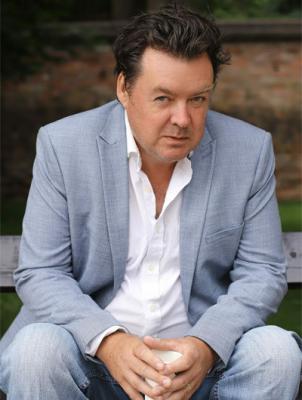
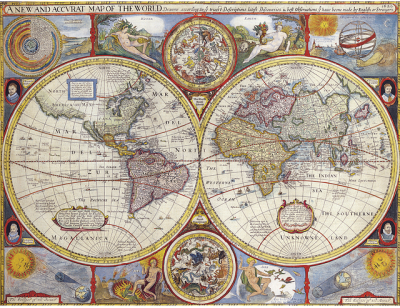

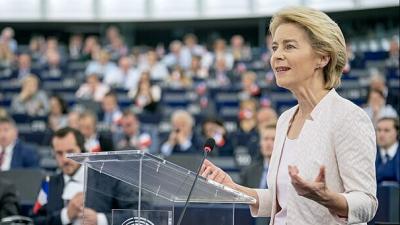

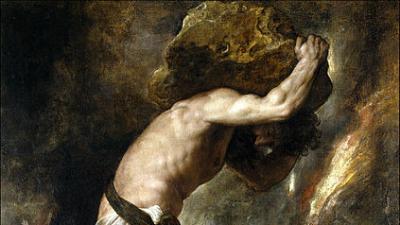

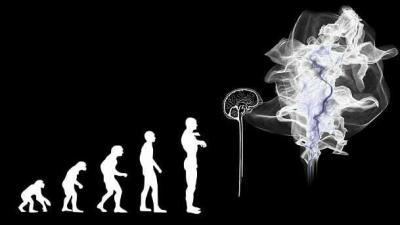

Comments (0)